
Lhuntse District: The Hidden Gem of Bhutan
Lhuntse District, nestled in northeastern Bhutan, is a serene and picturesque destination that offers an authentic glimpse into the country's rich cultural heritage. Known for its untouched natural beauty, Lhuntse is a paradise for nature lovers and adventurers alike. The district is dotted with lush valleys, dense forests, and majestic mountains that provide a perfect backdrop for hiking and exploring. The region is home to several ancient monasteries and temples, including the famous Lhuntse Dzong, an impressive fortress that stands as a testament to Bhutan's spiritual and architectural legacy. Visitors can also explore the Khoma village, renowned for its intricate and colorful Kishuthara weavings, a traditional art form passed down through generations. Lhuntse's remote location means it is less frequented by tourists, allowing for a truly immersive experience into Bhutanese culture and way of life. The friendly locals, traditional festivals, and serene landscapes make Lhuntse a must-visit destination for those seeking tranquility and an off-the-beaten-path adventure.
Local tips in Lhuntse District
- Visit in spring or autumn for the best weather and scenic beauty.
- Hire a local guide to explore remote villages and hidden trails.
- Attend a local festival to experience Bhutanese culture firsthand.
- Respect local customs and dress modestly when visiting religious sites.
Lhuntse District: The Hidden Gem of Bhutan
Lhuntse District, nestled in northeastern Bhutan, is a serene and picturesque destination that offers an authentic glimpse into the country's rich cultural heritage. Known for its untouched natural beauty, Lhuntse is a paradise for nature lovers and adventurers alike. The district is dotted with lush valleys, dense forests, and majestic mountains that provide a perfect backdrop for hiking and exploring. The region is home to several ancient monasteries and temples, including the famous Lhuntse Dzong, an impressive fortress that stands as a testament to Bhutan's spiritual and architectural legacy. Visitors can also explore the Khoma village, renowned for its intricate and colorful Kishuthara weavings, a traditional art form passed down through generations. Lhuntse's remote location means it is less frequented by tourists, allowing for a truly immersive experience into Bhutanese culture and way of life. The friendly locals, traditional festivals, and serene landscapes make Lhuntse a must-visit destination for those seeking tranquility and an off-the-beaten-path adventure.
When is the best time to go to Lhuntse District?
Iconic landmarks you can’t miss
National Memorial Chhorten རྒྱལ་ཡོངས་རྗེས་དྲན་མཆོད་རྟེན།
Explore the National Memorial Chhorten, a majestic Buddhist temple in Thimphu that embodies the spirit and culture of Bhutan.
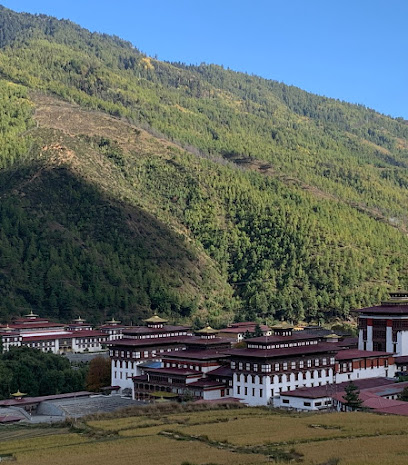
Jamphel Lhakhang བྱམས་་པ་ལྷ་ཁང་།
Experience the spiritual heart of Bhutan at Jamphel Lhakhang, a sacred temple brimming with history and tranquil beauty in Bumthang.
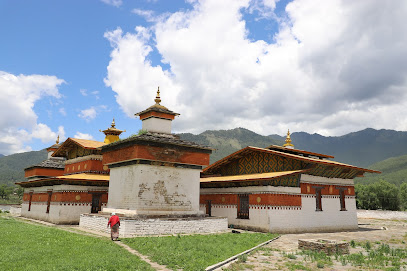
Lhuentse Dzong
Discover the architectural beauty and spiritual significance of Lhuentse Dzong, a historic fortress in the heart of Bhutan.
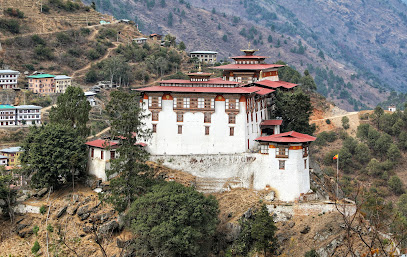
Phrumsengla National Park
Experience the breathtaking beauty of Phrumsengla National Park, Bhutan's natural wonder with diverse wildlife, stunning scenery, and rich cultural heritage.
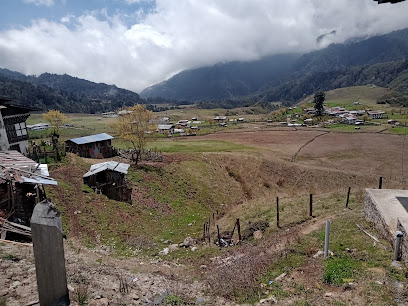
Lhuentse Takela
Experience the profound spiritual atmosphere of Lhuentse Takela, a sacred pilgrimage site enveloped in the natural beauty of Bhutan’s Himalayan landscape.
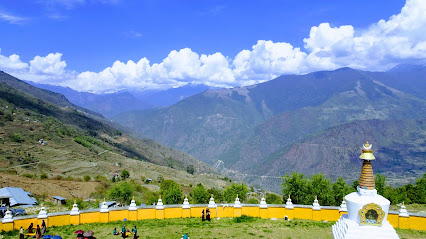
Jakar Dzong བྱ་དཀར་རྫོང་།
Discover the majestic Jakar Dzong, an architectural marvel and cultural gem in the heart of Bhutan, offering breathtaking views and rich history.
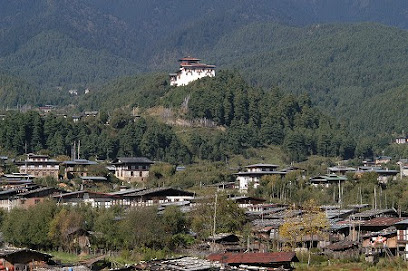
Dungkar Nagtshang
Experience the breathtaking beauty and rich cultural heritage of Dungkar Nagtshang, a must-visit historical landmark in Bhutan's Lhuentse district.
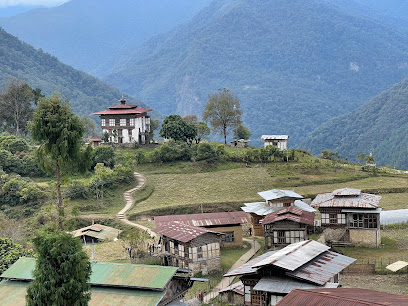
KHOMA VILLAGE
Explore Khoma Village, Bhutan's cultural treasure, where stunning landscapes and rich textile traditions await your discovery.
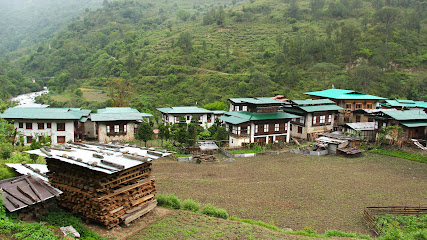
Lhuntse
Explore Lhuntse, the ancestral home of Bhutan's royal family, where stunning landscapes and rich traditions await every traveler.
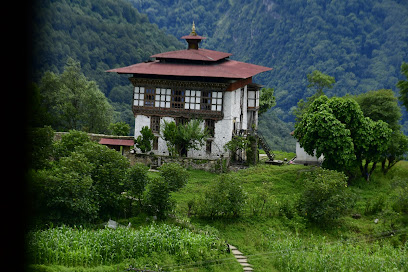
GANGZUR VILLAGE
Immerse yourself in the serene beauty and rich culture of Gangzur Village, a hidden gem in Bhutan perfect for nature lovers and cultural explorers alike.
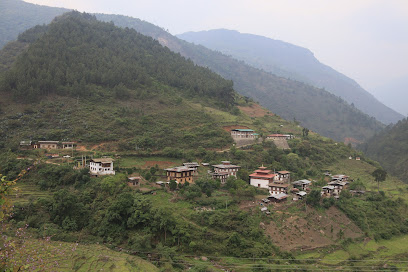
Kilung
Discover Kilung, a serene Buddhist temple in Lhuntse, Bhutan, where spirituality and breathtaking landscapes unite for an unforgettable experience.
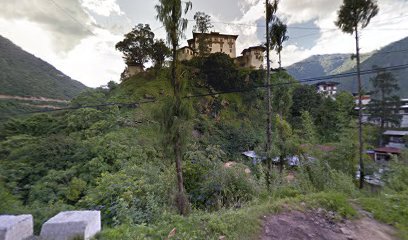
Unmissable attractions to see
Trashigang Dzong
Discover the breathtaking Trashigang Dzong, a historic fortress showcasing Bhutanese architecture, culture, and spirituality in stunning mountain scenery.
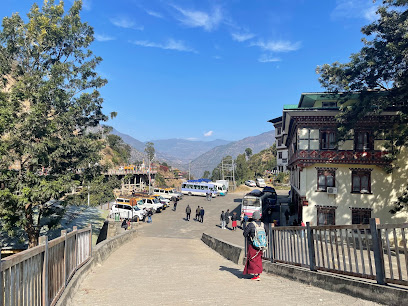
Tamshing Lhakhang གཏམ་ཞིང་ལྷ་ཁང་།
Explore the rich culture and serene beauty of Tamshing Lhakhang, a historic temple in Jakar, Bhutan, renowned for its stunning murals and spiritual ambiance.
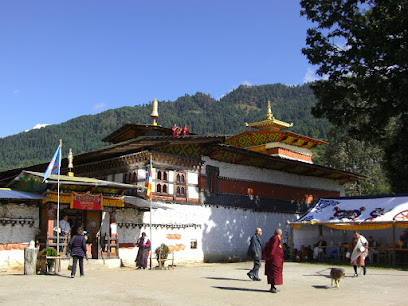
Ogyen Choling
Discover the rich tapestry of Bhutanese culture at Ogyen Choling Museum, where history and art converge in the stunning Tang Valley.
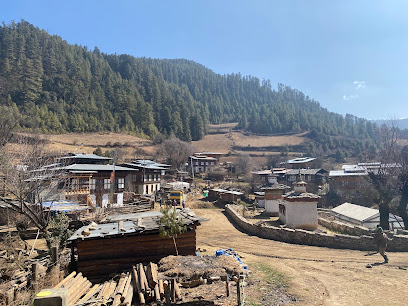
Lhuentse Takela
Explore Lhuentse Takela, a revered pilgrimage site in Bhutan, offering breathtaking views, rich culture, and a serene escape into spirituality.
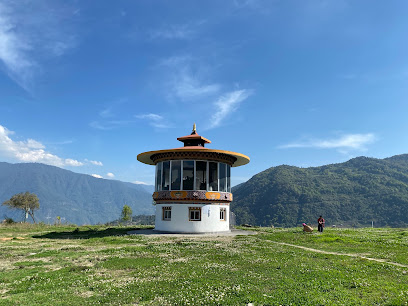
Jakar Dzong བྱ་དཀར་རྫོང་།
Explore Jakar Dzong, a stunning fortress in Bhutan's Bumthang District, rich in culture, history, and breathtaking views.
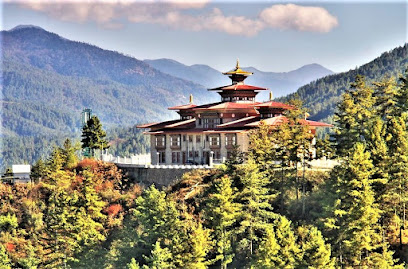
Dungkar Nagtshang
Discover the breathtaking Dungkar Nagtshang, a historical landmark that showcases Bhutan's rich cultural heritage and stunning natural beauty.
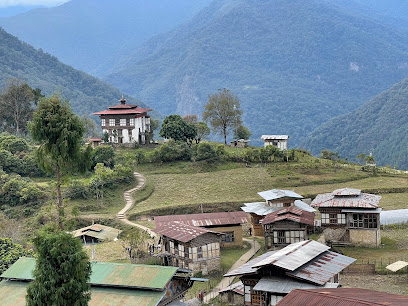
Namling Brrak
Explore the breathtaking vistas and rich cultural heritage of Namling Brrak, a must-visit tourist attraction in Sengor, Bhutan.
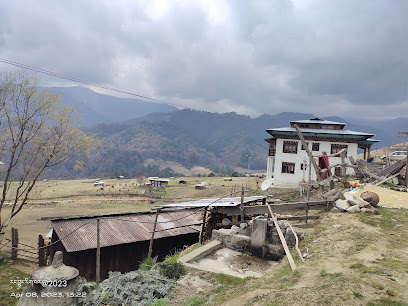
Drapham Dzong ruin
Discover the enchanting Drapham Dzong ruin in Kurjey, Bhutan, a historic site that blends breathtaking views with rich cultural heritage.

Autsho Suspension Bridge
Discover the stunning views and thrilling experience at the Autsho Suspension Bridge, a breathtaking tourist attraction in Monka, Bhutan.
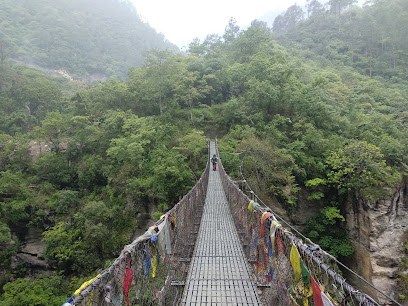
Nye Zigzag View Point
Explore the serene landscapes at Nye Zigzag View Point in Shabling, a perfect escape for nature lovers and photographers seeking stunning vistas.
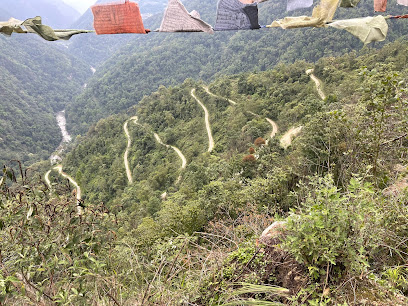
Dengkaling Renyesa Community Forest
Discover the serene beauty of Dengkaling Renyesa Community Forest, a national forest in Lhuntse, Bhutan, perfect for nature lovers and adventure seekers.

Gakyid Denpai Community Forest
Explore the breathtaking beauty and tranquility of Gakyid Denpai Community Forest in Bhutan, a hidden gem for nature lovers and adventurers alike.

Tabung Yargay Community Forest
Explore the breathtaking beauty and tranquility of Tabung Yargay Community Forest in Bhutan, a national forest rich in biodiversity and cultural significance.

Tang Valley Bumthang
Explore the serene landscapes and rich cultural heritage of Tang Valley in Bumthang, a hidden gem in Bhutan that captivates all who visit.

Tangbe
Discover breathtaking vistas and serene trails in Tangbe, a hidden hiking gem in Bhutan perfect for nature lovers and adventure seekers.

Essential places to dine
Ngawang home stay bumthang tamzhing
Discover authentic Bhutanese cuisine at Ngawang Home Stay in Bumthang Tamzhing – where warm hospitality meets traditional flavors.
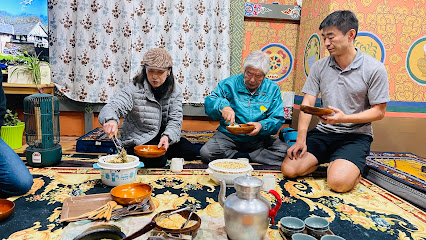
Swiss Guest House Restaurant
Experience authentic Bhutanese flavors paired with Swiss culinary traditions at Swiss Guest House Restaurant in Jakar.
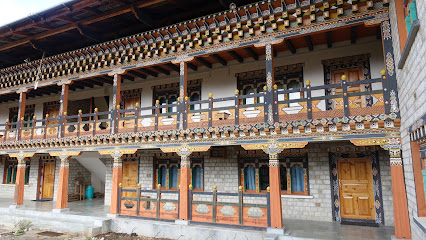
Kuenzang Hotel & Bar
Experience authentic Bhutanese cuisine at Kuenzang Hotel & Bar along the scenic Bumthang-Ura Highway in Sengor.
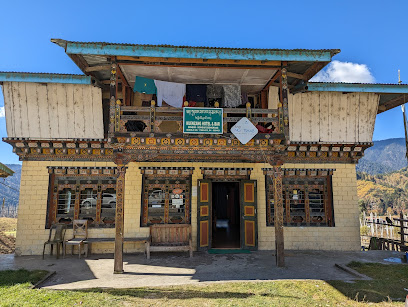
Gurung Restaurant
Experience authentic Bhutanese flavors at Gurung Restaurant in Lhuntse - where tradition meets taste.
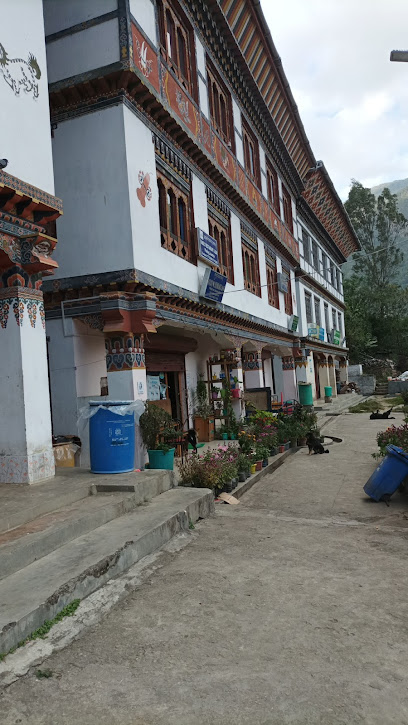
Kharamphay, Tangsibi, Ura, Bumthang
Experience authentic Bhutanese cuisine at Kharamphay in Ura, Bumthang - where tradition meets flavor in a breathtaking setting.
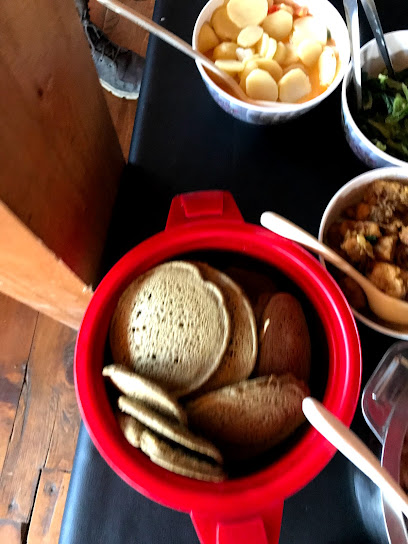
Ugyen Gaki Pelzom Shop
Discover authentic Bhutanese flavors at Ugyen Gaki Pelzom Shop in Lhuntse - where every meal is a celebration of local culinary heritage.
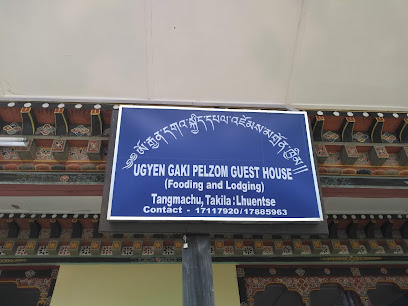
Rai Restaurant
Experience authentic Bhutanese cuisine at Rai Restaurant in Jakar—where every dish tells a story amidst stunning mountain views.
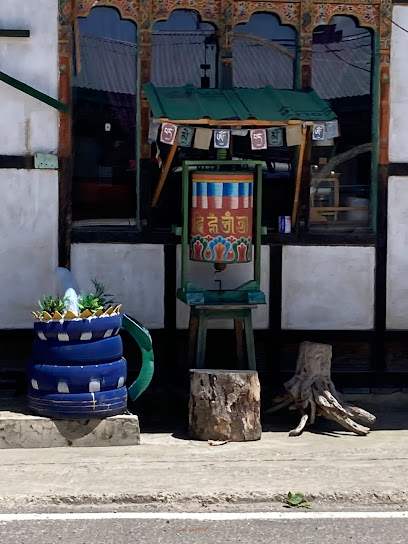
Bonafide Roast & Grill
Experience authentic Bhutanese flavors at Bonafide Roast & Grill in Jakar - a culinary delight amidst stunning landscapes.
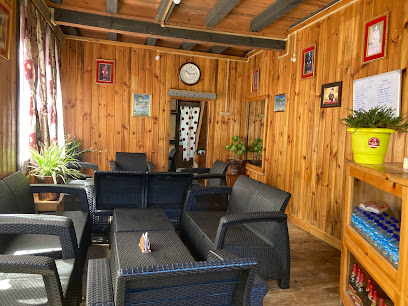
CHICK A ZAA
Savor authentic Bhutanese cuisine amidst stunning landscapes at CHICK A ZAA in Trashigang.
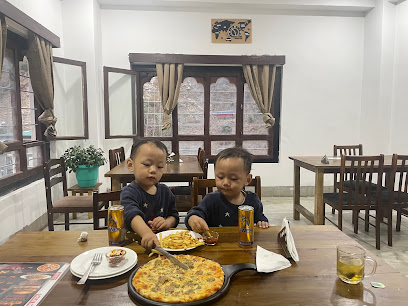
Sonam Restaurant
Experience authentic Bhutanese cuisine at Sonam Restaurant in Paling Town, Lhuntse - where tradition meets taste.
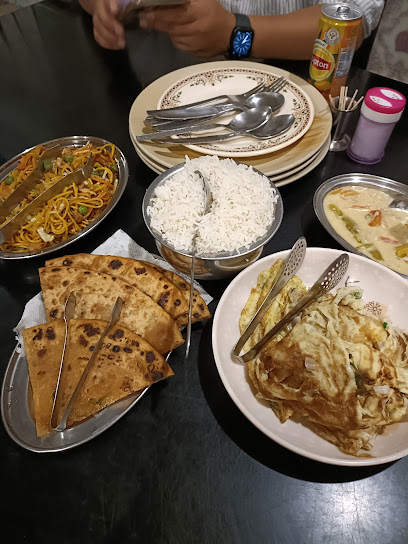
Lhuntshe autsho
Experience authentic Bhutanese flavors at Lhuntshe Autsho - A hidden gem in Autsho serving traditional dishes made from fresh local ingredients.
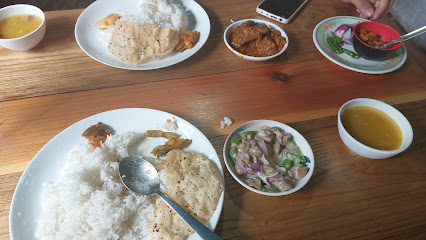
Markets, malls and hidden boutiques
Google Collection Mongar Bhutan
Explore the vibrant local culture at Google Collection in Mongar, Bhutan - your go-to general store for unique souvenirs and local crafts.
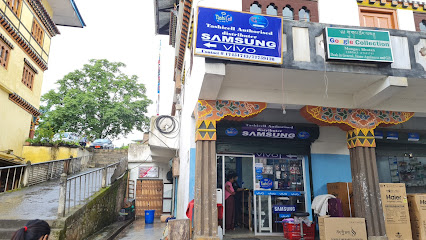
Lhuntse Mongar Junction Farmers Stall
Explore the authentic flavors of Bhutan at Lhuntse Mongar Junction Farmers Stall, where fresh produce meets local culture.
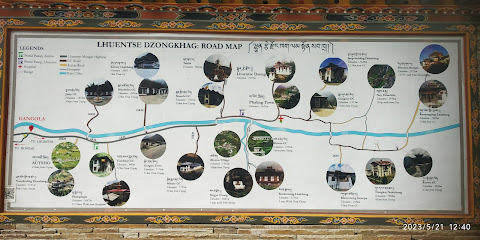
Tshewang Lhamo general shop
Discover the authentic charm of Tshewang Lhamo General Shop in Trashiyangtse, where local culture meets everyday convenience.
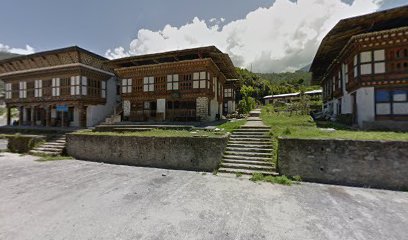
Phuentsho Jamtsho General Shop And Bar
Discover local flavors and unique souvenirs at Phuentsho Jamtsho General Shop And Bar in Khoma, a delightful blend of culture and convenience.

Gangzur Pottery
Discover the beauty of traditional Bhutanese pottery at Gangzur Pottery, where craftsmanship meets cultural heritage in the heart of Lhuntse.
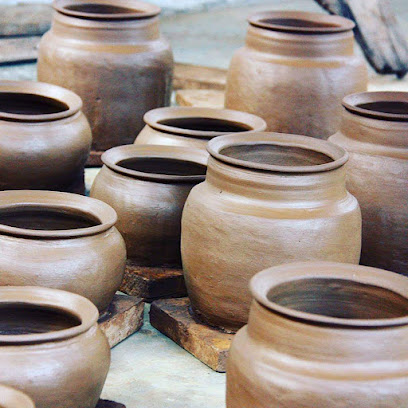
Bumthang Sports & Gifts Corner
Explore authentic Bhutanese handicrafts and top-notch sports gear at Bumthang Sports & Gifts Corner, your one-stop shop in Jakar.
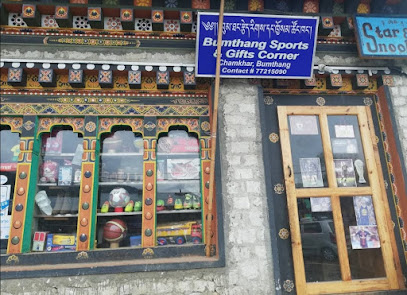
Rinchen Ghakhil Tshongkhang
Explore the rich flavors and local culture at Rinchen Ghakhil Tshongkhang, a charming grocery store in Autsho, Bhutan.
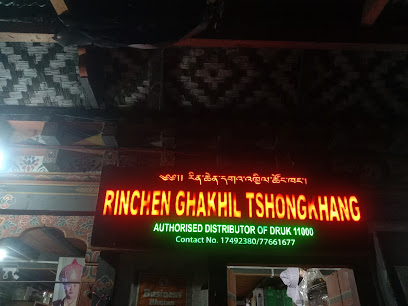
Tshongpon Taula Shop
Explore Tshongpon Taula Shop for authentic local crafts and a glimpse into the vibrant culture of the region, perfect for unique souvenirs.

Gorgan
Explore Gorgan: A charming Iranian city blending rich history, stunning landscapes, and vibrant local culture for an unforgettable experience.

MKR Meatshop
Explore the culinary treasures at MKR Meatshop in Autsho, Bhutan, where quality meets tradition in every bite.
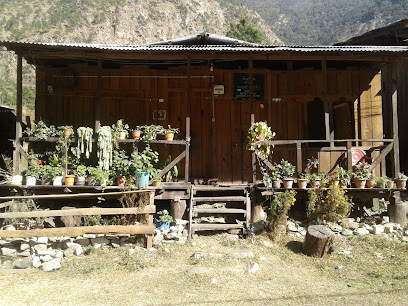
Youngmaling
Explore Youngmaling in Shabling, a unique industrial supermarket blending local culture with modern shopping delights.

Yeshi Tsongkhang
Experience the essence of Bhutan at Yeshi Tsongkhang in Naspe, where local crafts and culture come alive in a unique shopping adventure.
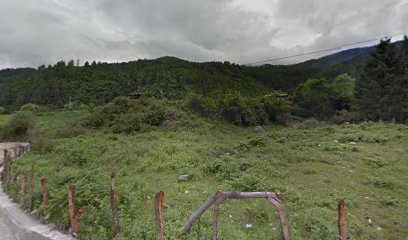
Sonam dekar general shop
Experience authentic Bhutanese culture and local flavors at Sonam Dekar General Shop in the heart of Lhuntse.
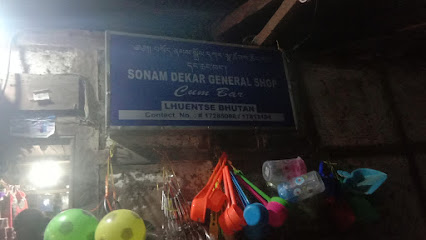
Yeshi general shop
Experience the essence of Bhutan at Yeshi General Shop, where local charm meets authentic shopping in Gyelpozhing.
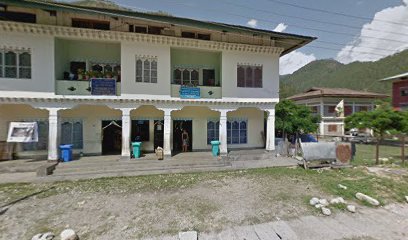
Sonam Yangchen Store
Discover authentic Bhutanese handicrafts at Sonam Yangchen Store in Jakar, a treasure trove for unique souvenirs and local artistry.
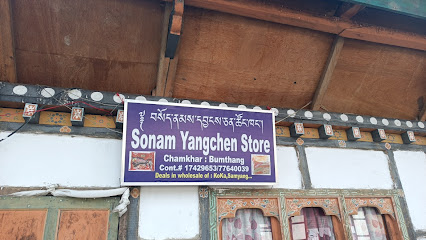
Essential bars & hidden hideouts
Kuenzang Hotel & Bar
Savor the flavors of Bhutan at Kuenzang Hotel & Bar, where authentic Bhutanese cuisine meets warm hospitality in Sengor.
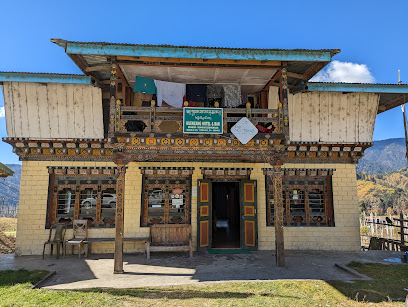
Gurung Restaurant
Experience the authentic flavors of Bhutan at Gurung Restaurant in Lhuntse, where delicious traditional dishes meet warm hospitality.
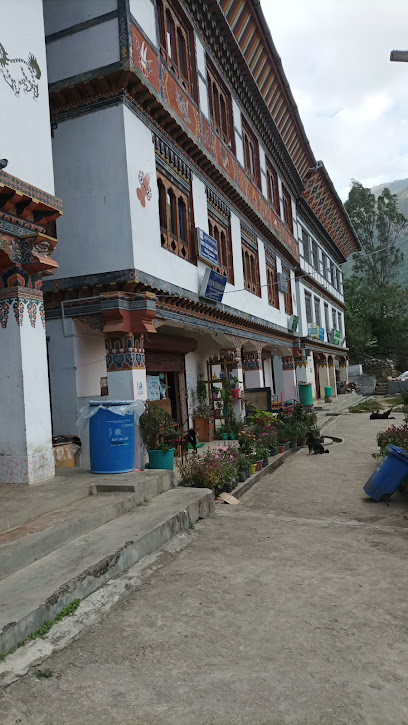
Tashi Gatshel Food and Lodge
Experience authentic Bhutanese cuisine in Sengor at Tashi Gatshel Food and Lodge, where local flavors meet stunning natural beauty.
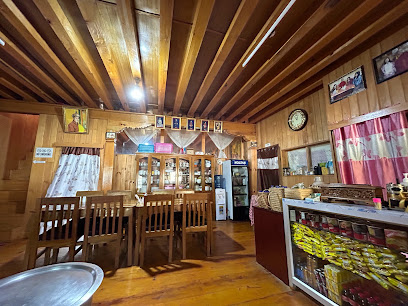
Ugyen Gaki Pelzom Shop
Experience authentic Bhutanese flavors at Ugyen Gaki Pelzom Shop in Lhuntse, where every dish tells a story of tradition and culture.
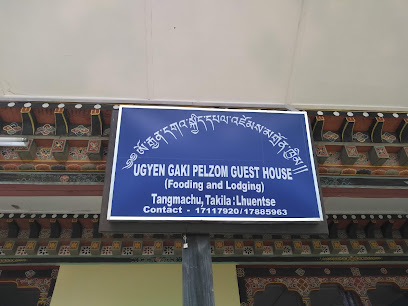
TP's Bar
Discover the lively ambiance of TP's Bar in Lingmethang, where refreshing drinks and friendly faces come together for an unforgettable experience.
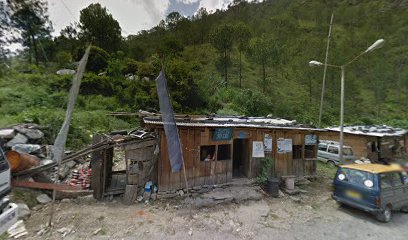
Jigyel Karaoke འཇིགས་རྒྱལ་སྤྲོ་གླུ་ཁང་།
Join the fun at Jigyel Karaoke in Trashiyangtse, Bhutan - a lively karaoke bar where music and laughter fill the air.
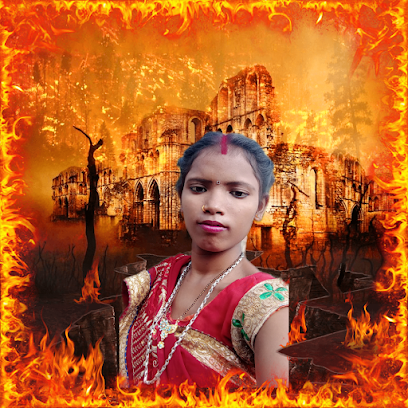
Tenzin Wangmo Bar
Discover the vibrant atmosphere of Tenzin Wangmo Bar in Jakar, where local flavors meet a cozy ambiance for an unforgettable experience.
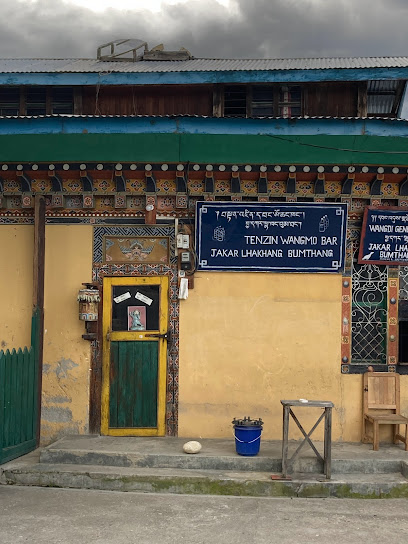
Family Restaurant
Experience the warmth of family dining at Lhuntse's best family-friendly restaurant, where every meal becomes a cherished memory.
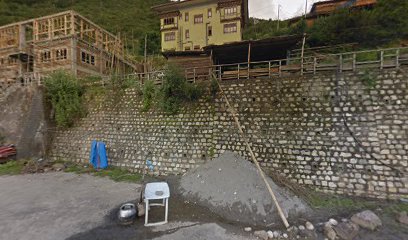
Ura Yurgang
Discover the local spirit at Ura Yurgang, a cozy bar in Ura offering traditional drinks and a taste of Bhutanese culture.
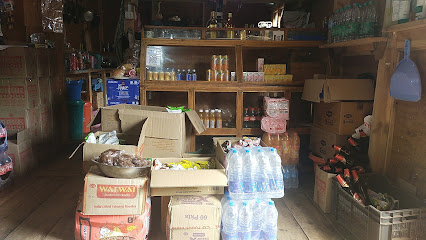
Pema Weezer restaurant
Savor authentic Bhutanese flavors at Pema Weezer Restaurant in Phaling, Lhuntse, where every dish tells a story of tradition and culture.

Lhuntshe autsho
Experience the authentic flavors of Bhutan at Lhuntshe Autsho, a must-visit restaurant in the heart of Autsho with stunning views and traditional cuisine.
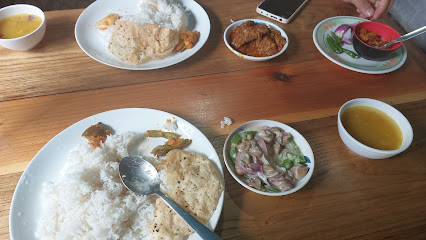
Norbu Yangkhel Shop and Restaurant
Explore the flavors of Bhutan at Norbu Yangkhel Shop and Restaurant in Autsho, where every dish tells a story of tradition and taste.
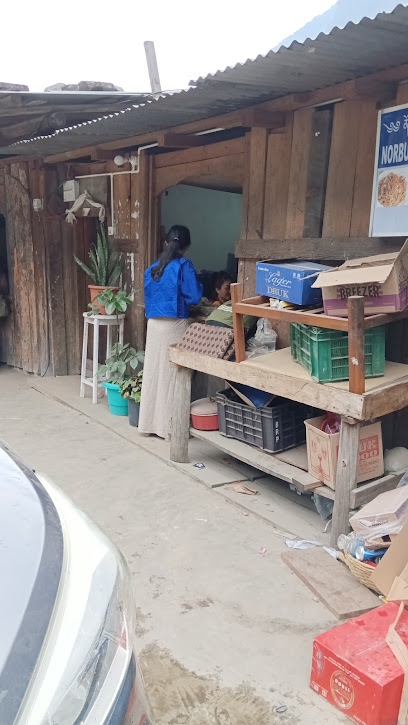
Subba Bar
Discover the lively spirit and cultural charm of Subba Bar in Jakar, Bhutan, where locals and travelers come together over drinks and music.
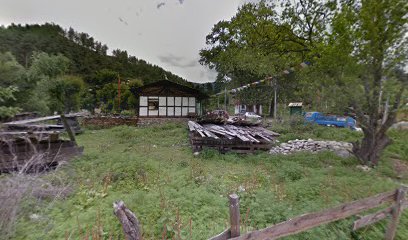
SHAANU RESTAURANT
Experience authentic Bhutanese cuisine at Shaan Restaurant, a cozy spot in Trashigang offering local delicacies and warm hospitality.
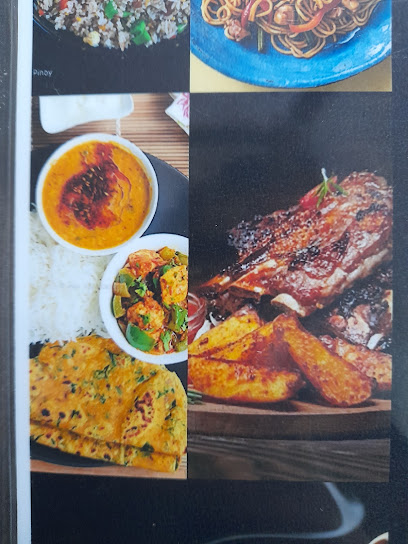
Local Phrases about Lhuntse District
-
- Helloཇ་ཕག་ལས་
[Ja phak la] - Goodbyeབདག་ལས་
[Dak la] - Yesཡིད་
[Yi] - Noམ་མེད་
[Ma me] - Please/You're welcomeདགེ་བ་དགེ་བ་
[Ge ba ge ba] - Thank youརེ་བ་ཤ་ནས་
[Re ba sha ne] - Excuse me/Sorryབར་ནས་
[Bar ne] - How are you?ཁྱེད་ར་མེད་ལས་
[Kye ra me la] - Fine. And you?སྐྱེ་ནས་. ཁྱེད་ར་མེད་ལས་?
[Skye ne. Kye ra me la?] - Do you speak English?ཨིན་གས་བཀབ་ས་མེད་ཚོ་?
[Ing sa khab sa me tso?] - I don't understandང་འཚ་གོ་མེད་མེད་ཚོ་
[Nga tso go me me tso]
- Helloཇ་ཕག་ལས་
-
- I'd like to see the menu, pleaseམཚོ་འདིས་བཞག་པ་
[Tso di zha pa] - I don't eat meatབག་སར་མེད་མེད་ཚོ་
[Gak sar me me tso] - Cheers!བཀུར་
[Kur] - I would like to pay, pleaseང་ད་ལ་བཞག་པ་
[Nga da la zha pa]
- I'd like to see the menu, pleaseམཚོ་འདིས་བཞག་པ་
-
- Help!གྲོ་ཁྱབ་
[Gro khyab] - Go away!ཤེས་གནས་
[She ne] - Call the Police!རྒྱབ་རིས་གྱི་གྲོང་ཚོ་
[Gyab ri gyi gro tso] - Call a doctor!སློབ་མ་གྱི་གྲོང་ཚོ་
[Lob ma gyi gro tso] - I'm lostང་སྐུར་ལ་གས་བཞི་
[Nga kur la sa zhi] - I'm illང་བར་མེད་
[Nga bar me]
- Help!གྲོ་ཁྱབ་
-
- I'd like to buy...ང་བཞི་བདག་པ་
[Nga zhi dak pa] - I'm just lookingང་ལས་འགྲོ་ཚོ་
[Nga la gro tso] - How much is it?དུས་གཙ་དུས་ཤ་མེད་?
[Dus tsu da sha me?] - That's too expensiveདུས་ཤ་མེད་གང་གི་ཡོད་བཞི་
[Du sha me gang gi yo zhi] - Can you lower the price?དུས་གཙ་གས་མེད་ཚོ་?
[Dus tsu ga me tso?]
- I'd like to buy...ང་བཞི་བདག་པ་
-
- What time is it?ཆོས་ཉིད་འགོར་ལས་?
[Cho nyi gor la?] - It's one o'clockདུས་གོར་ཁ་ཡིད་
[Dus gor kha yi] - Half past (10)ཕང་ཀ་བཀའ་གོར་
[Pang ka ka gor] - Morningཉིནམ་
[Nyi nam] - Afternoonཉིནམ་དཀར་
[Nyi nam kar] - Eveningཉིནམ་དགོའི་
[Nyi nam go yi] - Yesterdayཁ་སང་
[Kha sang] - Todayདེ་རིང་
[De ring] - Tomorrowནཱི་རིང་
[Nai ring] - 1གཅིག་
[Gcik] - 2གཉིས་
[Gñis] - 3གྱི་
[Gyi] - 4བཞི་
[Zhi] - 5ལྟ་
[La ta] - 6དྲུག་
[Drug] - 7དགུ་
[Gcu] - 8བར་
[Bar] - 9དགུ་བ
[Gcu ba] - 10བཅོམ་
[Chom]
- What time is it?ཆོས་ཉིད་འགོར་ལས་?
-
- Where's a/the...?མིང་ནས་...
[Ming ne...] - What's the address?རིནག་དེར་འདིིས་?
[Ring der di si?] - Can you show me (on the map)?ང་བར་གས་དོལ་འདིིས་?
[Nga bar tso dol di si?] - When's the next (bus)?སྦུ་གནས་མེད་དིིས་?
[Su ne me da si?] - A ticket (to ....)སྦུ་ཁུར་གི་གྲོང་ཚོ་
[Su khur gi gro tso]
- Where's a/the...?མིང་ནས་...
History of Lhuntse District
-
Lhuntse District, originally known as Kurtoe, is one of the oldest regions in Bhutan. The district's history dates back to the establishment of the Kurtoe Valley, which is believed to be among the first places where Bhutanese civilization began. The valley was a significant center for the early spread of Buddhism in Bhutan, with many monks and scholars traveling through the region.
-
The district is intrinsically linked to the legacy of Khedrup Kuenga Wangpo, the fourth Druk Desi (secular ruler) of Bhutan. He was born in the Kurtoe Valley and his influence is still palpable in the region. His efforts in consolidating religious and political structures in Bhutan had a lasting impact on the district, making it an important historical and cultural landmark.
-
Lhuntse Dzong, perched on a hill overlooking the Kurichu river, stands as a sentinel of Bhutanese heritage. Constructed in the 17th century by Trongsa Penlop Minjur Tenpa under the order of Zhabdrung Ngawang Namgyal, the dzong has been a focal point for Buddhist teachings and practices. It played a critical role in the region's defense and administration.
-
Lhuntse District holds a special place in Bhutanese history as the ancestral home of the Wangchuck dynasty, Bhutan's royal family. The village of Kurtoe Dungkar is particularly significant, as it is the birthplace of the first King, Ugyen Wangchuck. The Dungkar Nagtshang, the ancestral home of the Wangchuck family, is a site of pilgrimage and historical importance.
-
The district is renowned for its intricate and vibrant textile arts, particularly the Kushutara, a traditional garment worn by Bhutanese women. The weaving techniques and patterns have been passed down through generations and are considered some of the finest in Bhutan. The textiles from Lhuntse are highly sought after and play a vital role in the cultural identity of the region.
-
The Lhuntse Tshechu is an annual religious festival that showcases the district's rich cultural heritage. Held at the Lhuntse Dzong, the festival features masked dances, traditional music, and various rituals performed by monks. This vibrant celebration attracts people from all over Bhutan and offers a deep insight into the spiritual and cultural fabric of the region.
Lhuntse District Essentials
-
Lhuntse District is located in northeastern Bhutan. The nearest airport is Paro International Airport, approximately 475 kilometers away. From Paro, you can take a domestic flight to Bumthang Airport. Alternatively, you can drive from Paro to Lhuntse, which takes about 12-14 hours. Bhutan's road network is well-maintained but can be winding and steep, so hiring a local driver is advisable.
-
Transportation within Lhuntse District is mainly by road. Taxis and private hire vehicles are available for local travel. Public buses connect Lhuntse with other parts of Bhutan, but they are less frequent. Renting a car with a driver is a practical option for exploring the remote and scenic areas of the district.
-
The official currency in Bhutan is the Bhutanese Ngultrum (BTN). Credit cards are accepted in some hotels and larger establishments, but it is advisable to carry cash, especially in rural areas like Lhuntse. ATMs are scarce, so ensure you have enough cash before arriving in the district.
-
Lhuntse is generally a safe destination for tourists. There are no specific high-crime areas targeting tourists, but standard precautions should be taken. Avoid traveling alone at night in unfamiliar areas and keep an eye on your belongings in crowded places. Always follow local guidelines and respect cultural norms.
-
In case of an emergency, dial 113 for immediate assistance. The local police station and basic medical facilities are available in Lhuntse. It is highly recommended to have travel insurance that covers medical emergencies and evacuation. For minor health issues, there are pharmacies in the district where you can purchase over-the-counter medications.
-
Fashion: Do dress modestly, especially when visiting religious sites. Avoid wearing revealing clothing. Religion: Do respect local customs and traditions. Always remove your shoes and cover your head when entering temples and monasteries. Public Transport: Do be respectful and give up your seat to elderly passengers. Don't eat or drink on public transport. Greetings: Do greet people with a slight bow and a 'Kuzu Zangpo' (hello). Eating & Drinking: Do try local delicacies and accept food offerings graciously. Don't refuse hospitality, as it is considered impolite.
-
To experience Lhuntse District like a local, visit the local markets and interact with the friendly residents. Attend local festivals such as the Lhuntse Tshechu to witness traditional Bhutanese culture and dances. Explore the picturesque villages and monasteries, and take part in local customs and rituals. Don't miss visiting the Lhuntse Dzong, a stunning fortress with panoramic views of the surrounding valley.
Nearby Cities to Lhuntse District
-
Things To Do in Bumthang
-
Things To Do in Mongar
-
Things To Do in Trashigang
-
Things To Do in Trongsa
-
Things To Do in Punakha
-
Things To Do in Wangdue Phodrang
-
Things To Do in Thimphu
-
Things To Do in Paro
-
Things To Do in Guwahati
-
Things To Do in Phuentsholing
-
Things To Do in Gangtok
-
Things To Do in Itanagar
-
Things To Do in Shillong
-
Things To Do in Darjeeling
-
Things To Do in Rangpur







